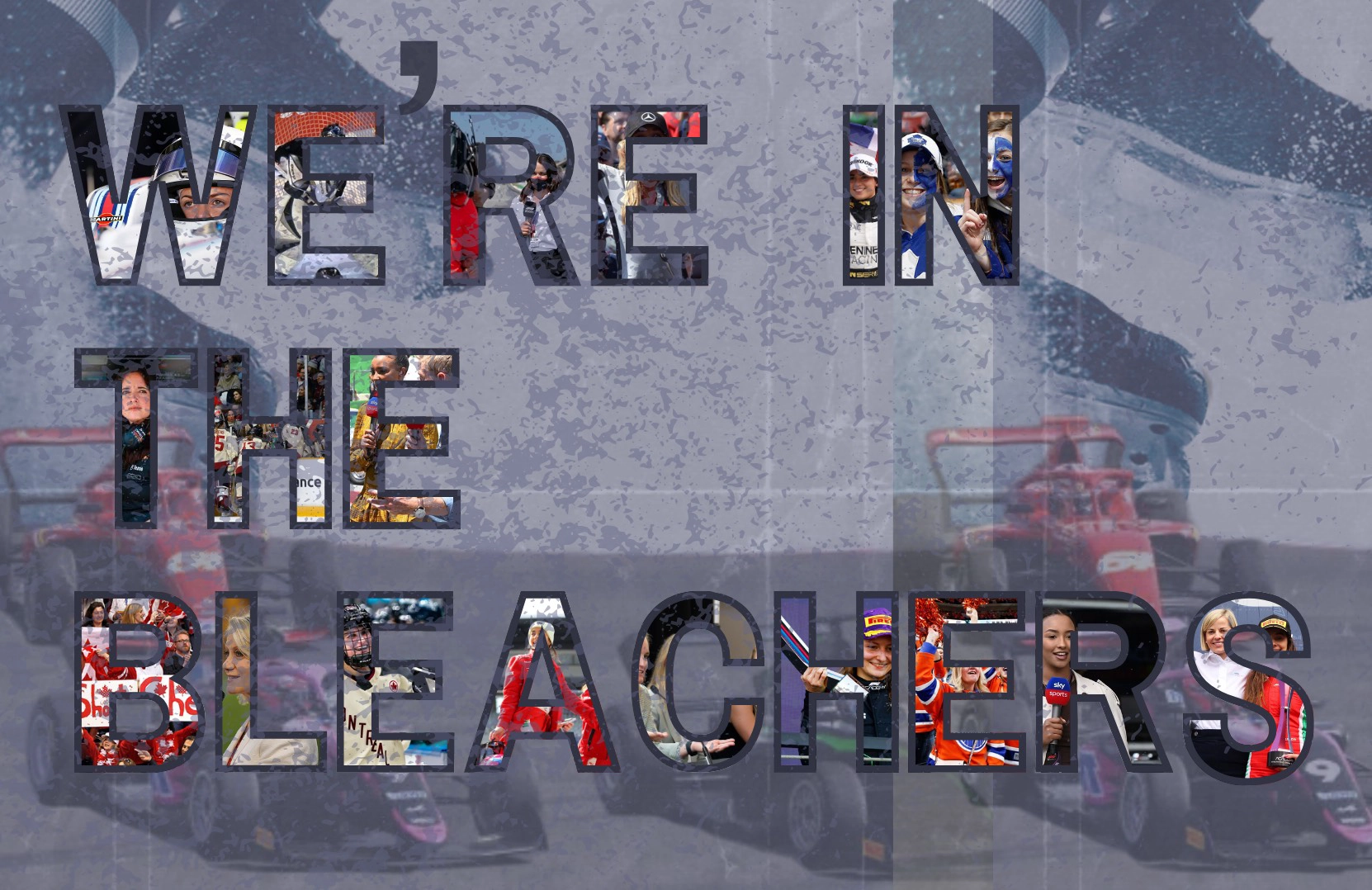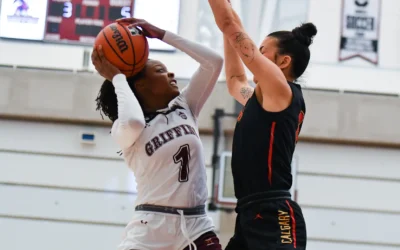It’s an unfortunate truth for too many girls that liking sports will always come with cynicism and difficulty. No matter which one, all fans who are women can describe at least one time their love for the sport was reduced to “liking it for the hot guys.” That sentiment is often followed by impossible quizzing where they’re demanded to recall obscure facts from some random game from years ago. Female fans are held to a higher standard in which they are constantly having to prove their worth within the fandom. This has often dissuaded women from the world of sports — but lately, we’ve decided to take up space in the bleachers.
In the rink – Avery
My fascination with hockey was ignited at the age of six, fuelled by the electrifying energy of live games — specifically the Edmonton Oil Kings. Players like Tristan Jarry, Curtis Lazar, and Patrick Dea welcomed me with pregame fist bumps and signatures on my jersey, encouraging me to claim my rightful spot in the hockey fan rolodex. However, my early experiences were clouded by the fog of sexism that lingered in the air of not the rink and any other setting where a sport I enjoyed was brought up. In the early 2000s and 2010s, I found myself going against the current of prejudice, facing dismissive comments and skeptical stares from boys my age who couldn’t fathom a girl with a genuine passion for sports. The phrase “you’re only here for the guys,” would echo in my head, their words slicing through my confidence and joy. Back then, I couldn’t articulate the words to tell them off in fear of my rebuttal being buried into the “overreacting [insert your choice of derogatory term here]” group.
Fast forward to today — times have changed, but the echoes of sexism still reverberate. The NHL All-Stars event featured players from the Provincial Women’s Hockey League (PWHL) and marked a significant step forward in the inclusion and representation deserved, bringing more female viewership to the event. However, there remains the mocking comments along the lines of “okay, name every player ever” that lingers in the air, a constant reminder of the skepticism female fans endure when expressing their interests. Despite progress made within the past couple years, toxic male fan backlash persists, underscoring the urgent need for the education of this generation’s male audience to further universal acceptance in the sports world. Only through understanding and dismantling the roots of prejudice can we create an environment of inclusivity and respect within the sports community.
The predominantly male fanbase isn’t the only factor that is deterring interest in the sport, as an increasing number of troubling allegations emerge each season. Presently, the 2019 World Juniors Canada team is under scrutiny for their conduct at an after-party in London, Ontario. Players Carter Hart, Dillon Dube, Michael McLeod, Cal Foote, and Alex Formenton have been charged with sexual assault and await trial. Meanwhile, the woman who came forward faced online backlash from men who were disappointed that their favourite player was implicated. While such incidents may be less frequent nowadays, they serve as a stark reminder that we can never be too comfortable until we share space instead of fighting over it.
Stepping into the sports industry presents its challenges, but I’m committed to creating an inclusive environment for aspiring female professionals. It’s crucial to work harder than the competing resumes by networking and crafting a compelling personal brand that positions you as a sought-after asset. Start from volunteer work with local little leagues, and climb the career ladder persistently, setting new goals with each step up. Despite societal pressures for women to remain passive in the workplace, I advocate for speaking up and recognizing the value of diverse perspectives while understanding when to take your seat and listen. Embracing this mindset empowers not only oneself but also future generations of women in sports.
On the track – Nour
Since its inception, Formula 1 has always been somewhat of a boys club. Yet, as sports became accessible through online media, more and more fans – specifically women – have been able to follow along. Despite that, it still remains a male-dominated world. Very rarely has a woman ever driven an F1 car, much less raced in one. This means that virtually all of the drivers, historically and currently, are men. There have only been two women to have raced in F1. And so comes the age-old statement: “You only watch F1 for the hot drivers.” Funny enough, drivers are covered head to toe during the entirety of the race. But this superficial reduction of women’s passions is nothing new, and has become the unfortunate status quo.
There has been recent change aimed at making the motorsport world more inclusive for women. F1 Academy has been a great program for integrating female drivers onto the grid and is led by a woman: Susie Wolff. There’s also been an increase in female representation within the staff of Formula 1 teams. In fact, Red Bull Racing’s strategist, Hannah Schmitz, has been integral to their recent success. Unfortunately, it feels as though with every step forward we take a couple back. Wolff faced scrutiny simply for being married to an F1 team principal. It is undeniable that her male counterparts would never be subjected to the same probing, which made the reason behind why her credibility was being questioned quite obvious.
Most recently, with the start of the 2024 season, female fans have begun to feel unwelcome in the Formula 1 world. With the recent allegations of inappropriate behaviour against Christian Horner, a prominent team principal, being dismissed despite evidence having been sent to every prominent figure in the F1 world, the sport has become tainted for many. This only became worse when most drivers responded to questions about these allegations with comments like: “It’s got nothing to do with me” or “I’m only here to drive.” The only driver to address the situation appropriately was Lewis Hamilton. While these responses are discouraging and can make us feel as though the already limited space we’ve forged for ourselves in this world is becoming even smaller, it’s important to push back, not go silently, and to take up our space.
I’d like to take a moment to acknowledge all of the women in the world of sports currently paving the way for people like me. The strategists, the drivers, the engineers, the journalists — each play a part in cementing our place in these spaces. Each battle we win is one less fight for the future generation of girls who will find themselves falling in love with a sport that has carved no place for them. So, as I settle onto my seat in the bleachers, I’ll remember F1 Journalist Laura Winter’s words: “We are here to stay, and we are right where we belong.”
Graphic by Nour Ihsene Salhi





0 Comments